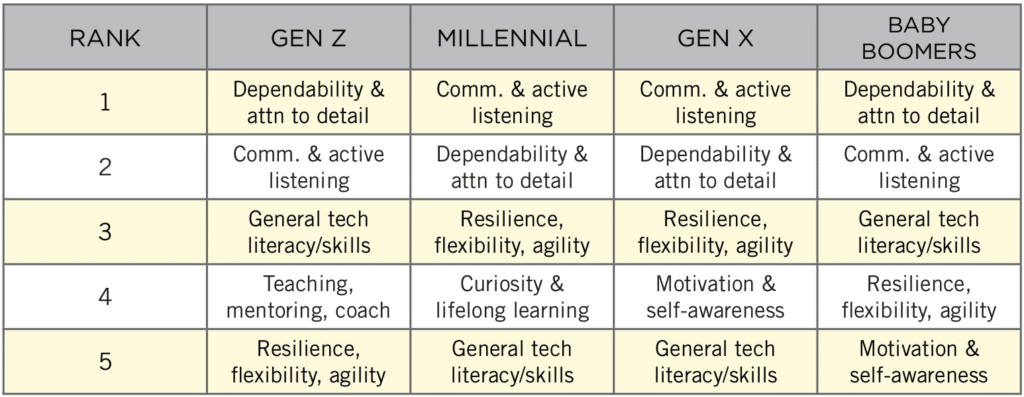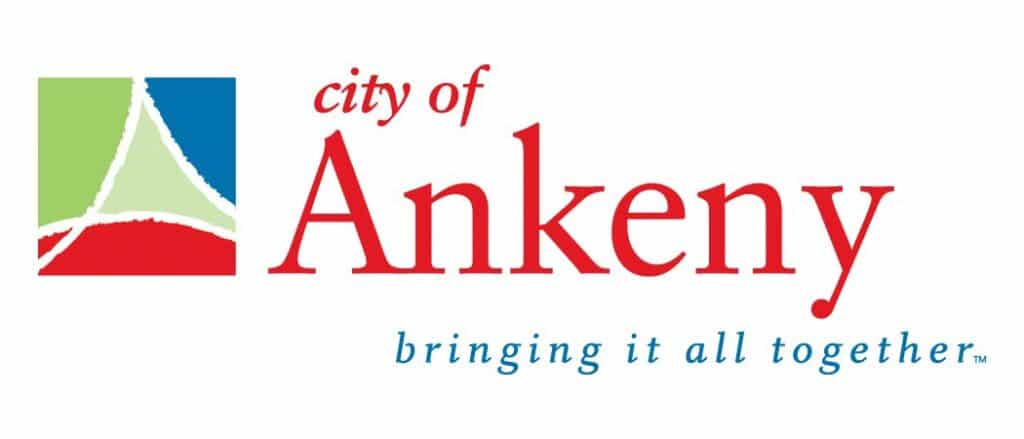Partnership workforce study shows Gen Z confident in employers’ ability to ‘upskill,’ AI most important future technical skill

Business Record Staff Aug 28, 2024 | 3:51 pm
3 min read time
747 wordsAll Latest News, Economic DevelopmentDes Moines-area Gen Zers are the demographic most confident in their employer’s ability to successfully train workers on future skills, while Millennials expressed the least confidence, according to a new study by the Greater Des Moines Partnership.
The Partnership, a nonprofit economic development organization for 11 Central Iowa counties, released the results of its 2024 Workforce Insights Study: Skills of the Future on Tuesday.
This is the third year that the Partnership has conducted a workforce study, according to a news release accompanying the report. The 2024 study gathered data from over 1,500 employees across 22 regional organizations to “assess the ongoing evolution and preferences of the DSM workforce,” the release says.
The workforce study broke down its findings by these 10 insights:
- The most crucial skills for the future emphasize human qualities.
- Des Moines-area workforce members largely have confidence in their employer’s abilities to upskill them.
- Artificial intelligence is on the minds of workforce members.
- Market opportunities for learning.
- Gen Z is confident in employers’ skill development efforts.
- Different industries equal different capabilities.
- High value with room for optimization.
- Flexibility is critical.
- Straightforward management.
- Making room for innovation.
“A regional analysis of workforce skills and skills for the future of work demonstrates the
strength of the DSM workforce,” said Jenae Sikkink, the Partnership’s senior vice president of talent development and inclusive strategies, in a prepared statement.
“Additionally, the Workforce Insights Study provides tangible insights for employers and educational institutions, as well as collaborative opportunities to invest in our region’s workforce so that it’s even stronger and more prepared for the future of work,” she said.
The Partnership’s 2024 workforce analysis was more broad than previous iterations, focused on gaining a deeper understanding of future workforce skills regionally, according to the report. Previous studies examined understanding downtown workers’ needs and interactions with downtown Des Moines.
Survey results showed that 70.87% of Gen Z workers were confident that their employer can provide them with skills they need for the future. However, “general technical literacy and advanced technical skills are exceptions where they are less confident in their employer’s ability to upskill them,” the report says.
“Teaching, mentoring and coaching are other skills where this generation feels their employer may be unable to bridge the gap, but they feel it is very important as it is their fourth most highly ranked skill. Lifelong learning is highly important compared to other generations, indicating a cohort of our workforce that is ready to learn, sees value in lifelong learning and is confident in their employer’s support,” the report says.
The workforce study says 59.72% of Millennials show confidence in their employer’s ability to upskill. “Millennials see curiosity and lifelong learning as slightly more important than Gen Z. This reinforces that our young workforce is open to learning future skills.”
Here are the top five skills of the future listed by each generational demographic in the study:

Employees surveyed said that human skills, or skills that lean into human engagement, were more important to future success than technical skills. But nearly 40% of the Des Moines area workforce said that skills related to artificial intelligence and “big data” would be the most important for future workforce.
According to the study, the top five attributes of workforce satisfaction for 2024 are:
- Benefits
- Collaboration
- Balance work and personal
- Autonomy
- Being treated fairly and equitably
The study shows employees are broadly confident in their employer’s ability to upskill their workers, but it also recorded overall workforce satisfaction among those surveyed dropped to 71.61% in 2024 from 80.61% in 2023.
“To understand this decline, we can adjust for variations across participating organizations each year. … Collaborative work influences overall satisfaction. Considering changes in work activities, the adjusted satisfaction figure is 73.78%, which still shows a decrease from the previous year,” the report says.
“The positive effects of collaboration on overall satisfaction, as well as the decrease in transactional activities required to facilitate this change, indicate that organizations can enhance work processes. This is a great opportunity to enhance work efficiency and profitability and free up our workforce for more complex, collaborative and ‘human’ tasks. This need to shift the nature of work in the DSM workforce is a red thread running through the data on work activities, satisfaction and even culture.”
To view the full results from the study, click here.
Related coverage:
Central Iowa workforce values in-office experience, but continues to want flexibility
Study looks at needs of DSM workforce as companies navigate return-to-office strategies








